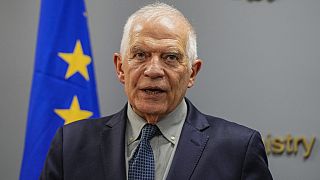Red sea
The recent tensions in the Red Sea have highlighted the challenges facing the European Union (EU) in achieving a unified stance on Middle East policies, particularly in response to the U.S.-led naval coalition against Houthi attacks. Eugenio Lopez, a Spanish economist, sheds light on the divisions among EU member states, emphasizing the difficulty of establishing a cohesive Western approach to the situation.
The United States' proposal for an international maritime coalition to safeguard shipping lines from Iranian-backed Houthi attacks has not garnered unanimous support within the EU. While the U.S. and Britain have shown solidarity in this operation, Spain, along with other EU members like Italy and France, has maintained a cautious and non-committal position.
Spain's decision not to join the Washington-led Operation Prosperity Guardian against the Houthis has remained firm, even in the face of increased pressure from the U.S. The Spanish government, led by Defense Minister Margarita Robles, has made it clear that it will not participate militarily in the Red Sea. Despite the U.S. and British strikes on the Houthis, the European Union suggested that member states conduct military operations in the region, but Spain, along with some fellow EU countries, has refrained from endorsing such actions.
Lopez points to the inherent challenge of achieving unity within the EU due to the diverse political systems and diplomatic strategies of its 27 member states. He emphasizes that EU countries are cautious about putting themselves under the control of American military forces, and their varied positions underscore the complexities of forming a cohesive foreign policy in the Middle East.
The instability in the Red Sea is not only a matter of geopolitical concern but also holds economic implications. Spanish media reports suggest that the crisis could pose a risk to Spain and Europe's economy, with estimates indicating potential losses of up to 135 billion euros in commercial exchanges between Spain and Asia. The escalating tensions have led to increased shipping costs, impacting Asia-Europe maritime trade. The conflict has forced cargo ships to bypass the Suez Canal and take a longer route south to the Cape of Good Hope, resulting in double the time and cost for maritime trade.
Lopez argues that the recent U.S. and British strikes have intensified the conflict and disrupted global maritime trade further, emphasizing the need for a careful and calculated approach to navigate these complex geopolitical and economic challenges.











00:58
U.S. airstrikes kill 20 at Yemen oil port held by Houthis
Go to video
EU foreign ministers discuss Ukraine, Syria and EU-African relations in Luxembourg.
Go to video
France: Le Pen declares 'nuclear bomb' dropped after office ban sentencing
01:09
Houthis claim downing of U.S. drone amid intensified airstrikes
Go to video
Questions remain about the cause of the submarine sinking in Egypt
Go to video
U.S. airstrikes kill key Houthi leaders amid escalating tensions